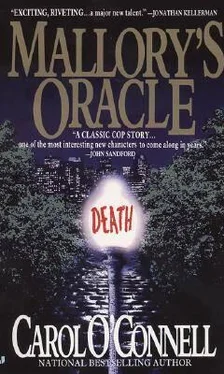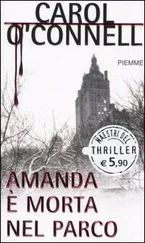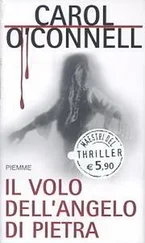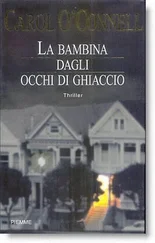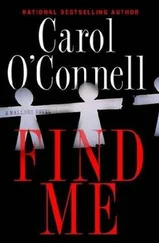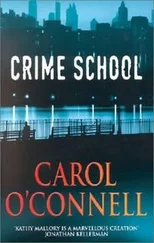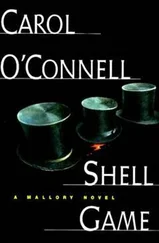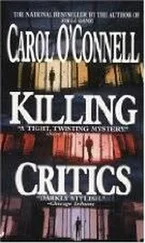Oh, kiss a dead rat. He was only confirming what she already suspected. He'd been had. That was in her face, though he had to give her points for not gloating. He threw up his hands and spilled more beer in the same motion.
She turned away from him. She'd heard what she wanted to hear. He'd run his mouth nicely at ninety miles an hour, given her information, thanks, but he could stuff the rest. He stared down at his bottle. How many beers had she slipped into his hand today?
"Maybe you overestimate Redwing," she said.
"No I don't. You're right about her being small-time, little fish. When she does go for gold, she screws it up. It's a history with her. But she's smart enough to beat the charges and mean enough to do you some damage. You don't want to get too close to her."
"So she does have an assault on her rap sheet."
So much for his idea of not disclosing information on Redwing.
"You stay the hell away from Redwing."
"I know you've got a new address on her. Give it to me."
"No way." There were limits. Kathy had done a number on him, a first-class mugging, but he couldn't give her everything. How many beers had he had? And did he just tell her that he had the address?
"Kid, you just never listen. Coffey's covering for you. You make a bad mistake and he goes down with you. You don't want to screw up the way Markowitz did. Nobody goes near her without a backup. Two of the arresting cops let me read their personal notes on Redwing. The charges were dropped in one case because the complainant disappeared. Another one died of a heart attack. In the case officer's opinion, the guy was scared to death."
He stared at her mask of a face in profile as she went back into the details of the bulletin board and was lost in there. He had been wrong. She did know how to listen and how to bait. Hadn't she listened as he told her the feed worked both ways, that he'd been holding out on her and shadowing her? All he had left was Redwing's address. Markowitz's daughter had the makings of a great cop.
"I was just trying to help you out, Riker. If your team is waiting for her to come back to the hole on Hudson Street, you're in the wrong neighborhood. She only uses that place because it has an underground access to a building on the next street. That's how she loses the surveillance team."
He lifted his bottle to the light and stared at it. If he put the mouth of it to his ear like a conch shell, would he hear Markowitz laughing at him?
***
Edith was making the kitchen noises of preparing lunch for Charles. He stood at the center of the carpet, turning slowly, sensing that something was out of place, but not knowing what it might be. The farther back he had to reach into the archives of his photographic memory, the more flaws he was likely to find.
The address had changed since he was a child, but not the character of the rooms. Edith and Max had recreated the interior architecture of the old house in Gramercy Park. The windows had been redone and the walls covered with matching wood panels and wallpaper. Upon his first and final childhood visit to this Soho address, at the age of nine, he had helped them to match the lesser details of each room with the photographs of his remarkable memory. They had given him this game to play during the week he had lived with them while his parents were at the other end of the world attending a conference. He had not stopped until each piece of antique furniture, each bit of bric-a-brac, photograph and painting was set in its accustomed place.
Ten years had passed between that visit and the next. As a boy of nineteen, he had noticed one change immediately. She had taken the portrait of Max off the wall of the front room and replaced it with a good hunting print. But for that one change, Edith had kept to the original integrity of the rooms. The same museum-worthy figurines, silver dishes and ashtrays appeared on table surfaces. The same clutter of photographs and candles sat on the mantelpiece. Doilies graced the tables, and antimacassars protected the brocade of the chairs. The telephone was circa 1910. The late twentieth century was hidden away in a back room where Edith kept her computer.
He walked down the hall and entered the room which, in smaller proportions, replicated the library of the Gramercy Park house. He had not had occasion to be in this room since he was a small boy. Later visits with Edith, in his adult years, had always been confined to tea and sandwiches in the front room. But this library was the room he had loved best. The shelves were filled with tomes on magic. Most of the volumes were collectors' items, some dating back two centuries. The fireplace with the ornate mantelpiece held the memories of Max's repertoire of ghost stories told on chill nights with marshmal-lows to toast on the fire, making white stringy goo on long sticks while Max terrified him and then made him laugh.
Charles stared at the mantelpiece. Something did not square with the child's memory. He picked up a photograph and admired the ornate silver frame. It was a good match to the other two frames which kept it company. None of them were here when he was a boy. And now he realized another oddity. The only picture of Cousin Max in the entire apartment was this newsprint photo which accompanied his obituary. No, on closer inspection, it was not an obituary. It was an article on Edith Candle, the famed medium who had predicted her husband's death.
This must be the same article Mallory had seen. According to the text, neighbors had confirmed the death prediction from the appearance of writing scrawled on the walls of the couple's Soho apartment.
The next newsprint photo, encased in a similar frame, was a portrait of a destroyed child. Large eyes, desolate and bewildered, peered out of a face not quite sixteen years old. This was the account of a boy's suicide. Edith's name appeared throughout the text. In the third companion frame was the posed and professionally photographed engagement portrait of a happy young woman. According to the article below the photograph, she had died in violence on the eve of her wedding.
"Charles?"
Edith was standing in the doorway, holding onto a tray of teapot and cups, condiments, sandwiches and silverware.
He took the heavy tray from her hands. "Let's have lunch in here, shall we? You know, I haven't been in this room since I was a boy. Has Kathleen ever been back here?" He set the tray down on the octagonal game table surrounded by leather armchairs.
"Yes, I believe I gave her a complete tour of the apartment."
He noted the slight distraction in her eyes and an agitation to her movements as she sat down at the table and began to pour out the tea. "What's troubling you, Edith?"
"It's Kathy. I'm very worried about that child."
"She's no child, and she's frighteningly capable."
"I don't believe she understands what she's up against. I can feel the evil, Charles. I can put out my fingers and feel it."
He looked to the photographs on the mantel. "I expect you've had these feelings before."
"I have. And the sad thing is, I was never able to avert tragedy. Perhaps it's true that destiny is writ and cannot be undone."
He walked over to the mantel and picked up the photo of the young suicide. "A case in point?"
She looked up see what he was holding, eyes refocussing through the thick lenses, and then she looked quickly away, back to the business of pouring, a task she took exaggerated pains with. Finally done with the ritual of one lump or two, she said, "That boy's been on my conscience for years. It was a terrible tragedy. Max and I were doing a head act then. We were on the tent-show circuit in the Midwest. Oh, that was a time. A different town every night, pitching the tent in hayfields and empty lots."
She reached out for the silver frame, and Charles put it into her hand.
Читать дальше
